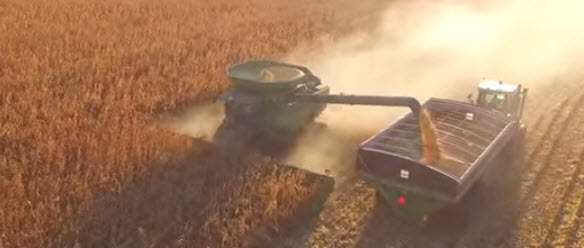Groups worry farmers could absorb carbon costs
By Diego Flammini
Assistant Editor, North American Content
Farms.com
Farm groups from around Western Canada are concerned the federal government’s carbon tax, scheduled to come into effect in 2018, could negatively impact producers.
Dan Mazier, president of Keystone Agricultural Producers told CBC that if fuel and fertilizers are included in carbon pricing, producers could incur those costs.
And farmers may not be able to make up the costs when delivering crops to elevators.

“For some farmers in a bad year, some of them that still have crops out there, this is going to really hurt,” Ray Orb, president of Saskatchewan Association of Rural Municipalities told CTV. “We need to really carefully think this through.”
Orb told the Canadian Press (CP) that farmers, especially those practicing no-till farming, have left good amounts of carbon in the soil. They should qualify for some sort of credit, according to Orb.
Jan Slomp, president of the National Farmers Union, told CP the organization recognizes the need to decrease greenhouse gases, but said farmers need to be protected.
“We definitely need to have a protection of small-scale producers that they don’t end up being subjected to all kinds of rules and regulations that don’t leave them any room,” he said.
Provinces have until 2018 to decide between a cap-and-trade system or a price-per-tonne of carbon system.
The federal tax will in start in 2018 at $10 per tonne of carbon and jump to $50 by 2022.